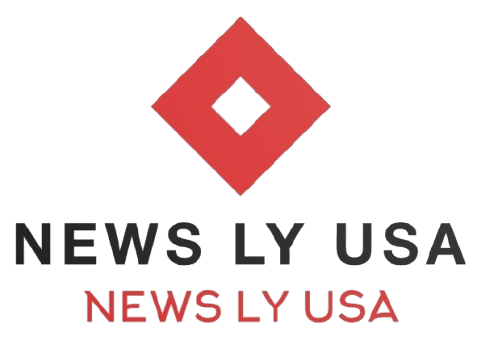Starting a business can feel like riding a rollercoaster blindfolded. There are ups, downs, and unexpected turns. Just when you feel secure, life prompts you with the question, “Have you secured business insurance?” Don’t panic! Grab a coffee (or your stress-eating snack of choice), and let’s dive into this simple yet detailed guide to help you find the right business insurance for 2025. We’ll cover everything—from the basics to the nitty-gritty.
What is business insurance, and why do you need it?
Business insurance serves as a crucial safeguard for your business. It protects your hard-earned empire against unexpected events like lawsuits, property damage, or even alien invasions (okay, maybe not the last one). As a safety net, you may not want to use it, but you’ll be glad it’s there.
Why is business insurance non-negotiable?
- Legal Requirements: Some types of insurance, like workers’ compensation, are mandatory in most states.
- Peace of Mind: Sleep better at night knowing you’re covered if something goes wrong.
- Client Trust: Many clients prefer working with insured businesses, as it shows you’re responsible and credible.
- Survival in Crisis: A lawsuit or natural disaster could wipe out an uninsured business faster than you can say “premium.”
Types of business insurance: simplified and demystified
Understanding business insurance can feel like deciphering hieroglyphics. Fear not! Here’s a breakdown of the main types you should know about:
1. General Liability Insurance
Think of this as the “catch-all” insurance. It covers:
- A bodily injury could occur if someone trips over a rogue power cord in your office.
- Property damage occurs when an employee unintentionally damages a client’s elegant antique vase.
- Legal fees: Lawyers do not work for free, as we have verified.
Who needs it? Everyone. This is an essential component of business insurance.
2. Professional Liability Insurance
Also referred to as “Errors and Omissions” insurance, it provides coverage in the following situations:
- You make a mistake in your work.
- You miss a deadline.
- Your advice accidentally causes financial losses for a client.
Who needs it? Those who provide professional services, such as consultants, accountants, lawyers, and others, require it.
3. Property Insurance
This covers:
- Your building (if you own one).
- Your inventory, equipment, and furniture.
- Damages resulting from fire, theft, or storms are not covered (sorry, we don’t cover tornadoes that carry sharks).
Who needs it? Anyone with physical assets. If you have an office, a warehouse, or a unicorn-shaped coffee table, you need this.
4. Workers’ Compensation Insurance
This covers:
- The company covers the medical costs of workers who sustain injuries at work.
- Those unable to work lost their wages.
- Legal fees may be incurred if an employee files a lawsuit against you.
Who needs it? Employers with at least one employee. Yes, even if that one employee is your cousin Bob.
5. Commercial Auto Insurance
This is for vehicles used for business purposes. It covers:
- Accidents.
- Damage.
- Theft.
Who needs it? Anyone who uses vehicles for work, ranging from delivery trucks to company cars, requires it. This includes delivering cupcakes in a minivan.
6. Business Interruption Insurance
If your business is forced to close temporarily (thanks, natural disasters), this covers:
- Lost income.
- Employee wages.
- Operational expenses.
Who needs it? Businesses that heavily depend on physical locations or those in disaster-prone areas require it.
7. Cyber Liability Insurance
In the current digital era, hackers represent the contemporary equivalent of pirates. This insurance covers:
- Data breaches.
- Recovery costs.
- Legal fees.
Who needs it? Any business that handles sensitive customer information or conducts online transactions requires it.
How to choose the right business insurance
Step 1: Assess Your Risks
What keeps you up at night? Lawsuits? Cyberattacks? Figure out the risks your business faces and prioritize them.
Step 2: Know Your Industry’s Requirements.
Some industries have specific insurance requirements. For example, construction businesses often need surety bonds, while healthcare providers might need malpractice insurance.
Step 3: Shop Around
Don’t settle for the first quote. Compare prices and policies from multiple insurers. Remember, the cheapest isn’t always the best.
Step 4: Check the Fine Print
Read your policy carefully. Look for exclusions, coverage limits, and deductible amounts.
Pro Tip: If the fine print gives you a headache, bribe a lawyer with coffee and donuts to review it for you.
Top Business Insurance Providers for 2025
Here’s a handy table to compare some of the best insurance providers this year:
| Provider | Best For | Key Features | Average Premium |
|---|---|---|---|
| Next Insurance | Small businesses | Customizable plans: online quotes | $30-$60/month |
| Hiscox | Professional services | Tailored policies and international coverage | $40-$70/month |
| Progressive | Commercial auto insurance | Affordable rates and multi-policy discounts. | $50-$90/month |
| State Farm | General liability | Local agents, personalized support | $50-$80/month |
| Chubb | High-risk industries | Comprehensive coverage options | $70-$100/month |
Common Mistakes to Avoid When Buying Business Insurance
- Underestimating Your Coverage Needs: Buying too little insurance can leave you vulnerable. Don’t skimp!
- Failure to update your policy may result in changes to your insurance needs as your business grows. Keep your policy up to date.
- Ignoring Reviews: Check customer feedback before committing to an insurer.
- Skipping Cyber Insurance: If you’re online, you’re at risk. Period.
- Choosing Price Over Quality: Cheap insurance is tempting, but it’s not worth it if it doesn’t cover your actual risks.
FAQs About Business Insurance
1. Do I need business insurance if I’m a freelancer?
Yes! Clients love to see a “professional” touch, and liability insurance can protect you from lawsuits.
2. Is business insurance tax-deductible?
Good news! Most business insurance premiums are tax-deductible as business expenses.
3. Can I bundle different types of insurance?
Absolutely. Many providers offer package deals, such as a Business Owner’s Policy (BOP), which bundles general liability and property insurance.
4. What’s the difference between general and professional liability insurance?
General liability covers physical risks (e.g., injuries), while professional liability covers work-related mistakes.

Conclusion: Protect Your Business Like a Pro
Choosing the right business insurance doesn’t have to be overwhelming. Start by understanding your risks, researching providers, and comparing policies. Consider it as a safeguard for your business, with no expiration date.


